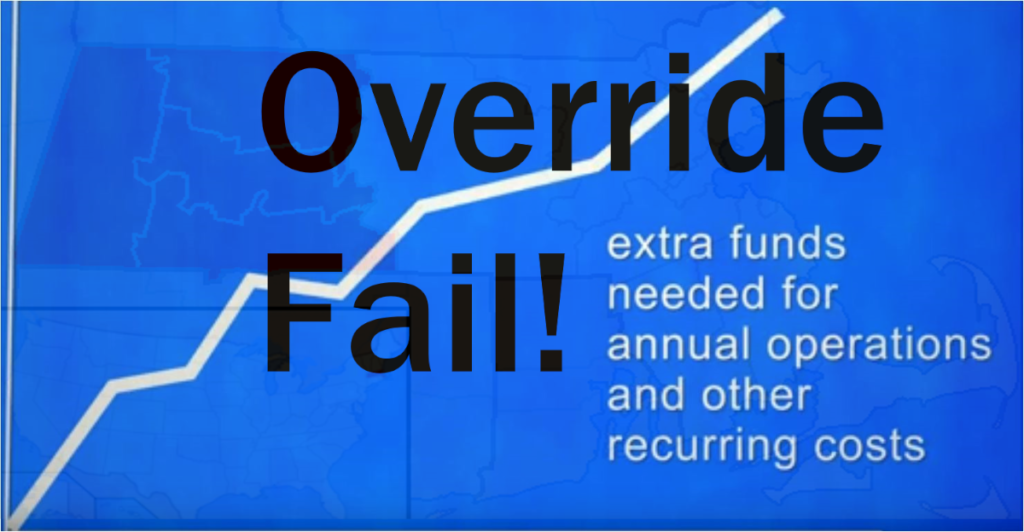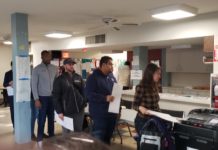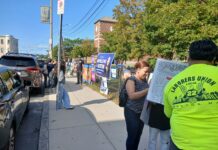This past spring voters in several Massachusetts cities and towns turned down Proposition 2 1/2; Enough is Enough?
By FRANK CONTE
It is hardly the tax revolt of the late 1970s and early 1980s but voters in several cities and towns across the Commonwealth have turned back efforts to override Proposition 2 1/2, the property tax limitation law.
After the growth of local budgets, they are telling elected officials enough is enough. Such opposition is also turning up in the least expected cities and towns such as Melrose, which have successfully passed overrides in the past and have elected officials quick to expand budgets. Over the past few years, taxpayers have watched municipal budgets grow in part due to “extra money” coming in from Washington’s pandemic-fighting efforts and a strong state economy that boosted local aid. Spending on items such as education and municipal services increased. Money for special climate change mitigation also showed up. The problem with these increases is that they become the new benchmark — the result of a ratchet effect that keeps spending at crisis levels long after the crisis has passed. Public officials are loathe to cut services in response to higher costs and lower revenues as the flow of federal and state dollars decline. Along the way, they are less likely to offend special interests such as teachers and other public employee unions. This spring, local cities and towns put ballot measures before the voters in essence passing the buck. But unlike other override efforts marked for new projects some were to cover operating budgets. They were expecting some sympathy from taxpayers. But most were disappointed.
In addition to Melrose, taxpayers in North Reading, Pepperell, Townsend, Hanover, Franklin, Westford, Groton, Dunstable and Norton all recently voted down overrides. To be sure, there were some outlier cities and towns that approved their overrides such as Belmont and Braintree, the latter turning to its first override ever to increase tax revenue by $8 million (which still is not enough, said city officials.)
The trend is forcing officials to pay attention.
Inflation is clearly a factor although budgets were increasing before prices started rising. Most tax
payers maintain that cities and towns should tighten their belts just like families are doing. The failure
of the overrides speak to this disconnect between the public sector (whose appetite cannot be satisfied) and the needs of households to make ends meet in a state where it becoming increasingly expensive. According to Forbes, Massachusetts ranks second when it comes to cost of living a measure that includes expenses for essentials such as housing, healthcare, food, transportation and, of course, taxes.
Among all the failed efforts, the “tax revolt” in Melrose makes for an interesting case study. Melrose has approved overrides in the past and last fall elected a progressive-leaning Mayor Jennifer Grigoraitis who breezed past former City Councilor Monica Medeiros by a margin of 56 to 42 percent. She carried all but one of the city’s 14 precincts last November. But in June voters (some 519 more who showed up for the override question than the mayoral election) sent a message that said in essence: “We can’t afford it.”
The mayor’s popularity wasn’t enough to change minds. In June, override supporters were able to only win victories in four precincts and not by much. The override went down 55 percent to 45 percent — a virtual reversal of last fall’s mayoral election. Clearly, some of the mayor’s own supporters had a problem with the city asking for more money to cover operating costs.
There is another lesson that emerges from the recent failed override. In 2022, Melrose overwhelmingly voted for the so-called “Fair Share Amendment” tax (which added a 4 percent surcharge to taxpayers earning more than $1 million a year.) By a 55 percent to 42 percent margin Melrose voters supported taxing those other folks. But when the tax hike hits closer to home, voters were not swayed by calls for more taxes. It lends a bit of credence to the adage about government spending: eventually you run out of other people’s money and then perhaps your own.
This article, written by Frank Conte, appeared as an unsigned editorial in the Wakefield Daily Item on July 16, 2024.
















